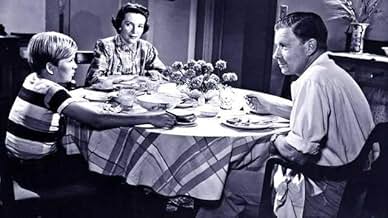Billy Gray(I)
- Interprete
- Colonna sonora
Billy Gray è nato il 13 gennaio 1938. Luogo di nascita: Usa. È conosciuto come attore. È celebre per aver partecipato a Ultimatum alla Terra (1951), Vecchia America (1951) e Papà ha ragione (1954).
- Candidato a 1 Primetime Emmy
- 1 candidatura in totale
Interprete
Colonna sonora
- Papà ha ragione7,4Serie TV
- performer: "Happy Birthday To You"
- performer: "Good Night, Ladies"
- performer: "Bongo Solo"
- 1958–1960
- The Girl Next Door6,4
- performer: "I'd Rather Have a Pal Than a Gal Anytime", "You(I)'d Rather Have a Pal / I'm Mad About the Girl Next Door" (medley) (non citato nei titoli originali)
- 1953
- Vecchia America6,9
- performer: "Cuddle Up a Little Closer, Lovey Mine", "Hark! The Herald Angels Sing" (non citato nei titoli originali)
- 1951
- Nomi alternativi
- Billie Gray
- Data di nascita
- ConiugiDonna Wilkes1977 - ? (divorziato)
- Genitori
- Altre opereStage: Appeared in Joseph Stein (III)'s play, "Enter Laughing," at the Cape Playhouse in Dennis, MA, with Lynn Bari and Alan Mowbray in the cast.
- Inserzioni pubblicitarie
- QuizIn July 1998, he settled a libel suit he brought against noted film critic and historian Leonard Maltin, known for his annual guides on available movies and videos. In all guides from 1974-98, Maltin mistakenly listed Gray as a real-life drug addict and pusher in the critique of Dusty and Sweets McGee (1971); he appeared in the film only as an actor. Part of the settlement required that Maltin publicly apologize for the 27-year-long defamation of character. He did so during a press conference on the morning of July 18, 1998.
- Citazioni[in 1983, on his Papà ha ragione (1954) years] I wish there was some way I could tell kids not to believe it--the dialogue, the situations, the characters--they were all totally false. The show did everybody a disservice. The girls were always trained to use their feminine wiles, to pretend to be helpless to attract men. The show contributed to a lot of the problems between men and women that we see today . . . I think we were all well motivated, but what we did was run a hoax. Papà ha ragione (1954) purported to be a reasonable facsimile of life. And the bad thing is that the model is so deceitful. It usually revolved around not wanting to tell the truth, either out of embarrassment or not wanting to hurt someone . . . If I could say anything to make up for all the years I lent myself to that kind of bullshit, it would be: "YOU Know Best".
Domande frequenti8
Powered by Alexa
Contribuisci a questa pagina
Suggerisci una modifica o aggiungi i contenuti mancanti





























